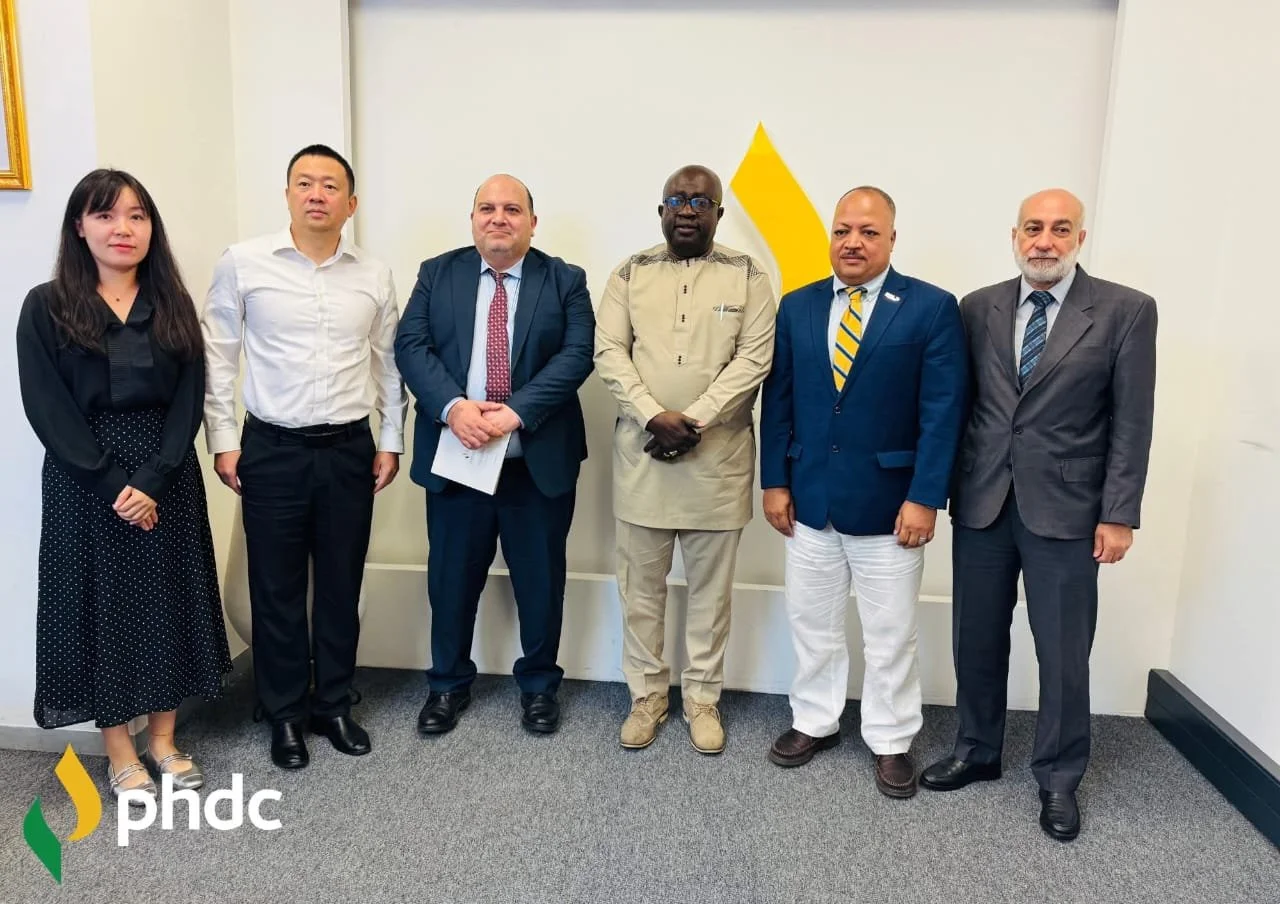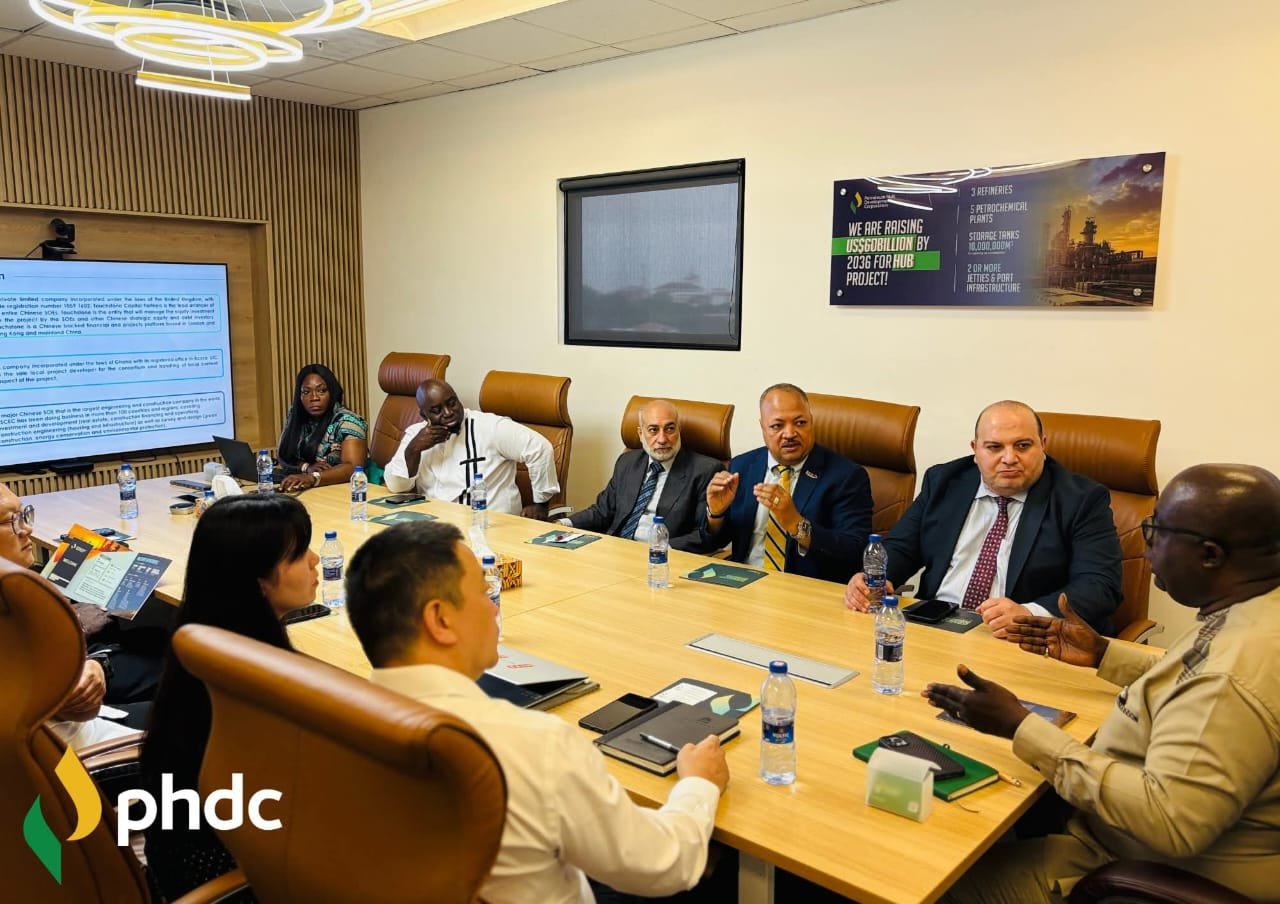UAE–China Consortium Joins Growing Global Bet on Ghana’s Petroleum Hub Vision
Backed by Mitsui Talks, Calgary Diplomacy, and Ground-Level Commitments, PHDC Advances as Africa’s Next Energy Powerhouse
In a strategic show of confidence, a joint investment consortium from the United Arab Emirates, China, and Ghana has initiated discussions with PHDC on entering the multi-billion-dollar Petroleum Hub Project. This latest expression of interest represents a milestone in Ghana’s push to transform its western corridor into the continent’s leading energy processing and logistics centre. It also reflects growing global recognition of Ghana as a stable, investment-ready jurisdiction in an increasingly fragmented global energy landscape.
Just weeks earlier, Japanese trading house Mitsui & Co. met with PHDC leadership to explore joint ventures spanning engineering, infrastructure, and energy financing. The entry of such a renowned player underscores the global seriousness with which the Hub’s investment climate is now regarded. With an estimated investment need surpassing $60 billion, the project offers significant returns in refining, petrochemical manufacturing, and maritime logistics, positioning Ghana to capture value across the hydrocarbon value chain.
At the Global Energy Show in Calgary, PHDC CEO Dr. Toni Aubynn delivered a compelling case for Ghana as the gateway to Africa’s next generation of energy innovation. His pitch: that the Petroleum Hub is not just a national asset but a continental proposition—a bold African solution to the structural inequities of crude exports and refined imports that have long distorted the continent’s energy economics.
The vision is as ambitious as it is strategic. Located in Jomoro in Ghana’s Western Region, the Hub will span more than 20,000 acres and include up to three large-scale refineries, at least five petrochemical complexes, major storage facilities capable of holding over 10 million cubic metres of products, and deepwater jetties for transnational crude and finished product movement. A logistics and regulatory zone will anchor the entire system, ensuring compliance with international environmental and operational standards.
Beyond infrastructure, PHDC is investing in people. In partnership with Tema Oil Refinery (TOR), the Corporation launched a national capacity-building initiative earlier this year aimed at training 500 Ghanaian youth in oil and gas operations, providing certification and eventual job placement. The move signals a forward-thinking local content strategy—one that recognises that no infrastructure, however grand, can thrive without human capital to match it.
Traditional leadership, too, has been brought into the fold. Following initial concerns about land ownership and project footprint, the Western Nzema Traditional Council has publicly declared its support for the Petroleum Hub, clarifying that the lands in question are stool lands and affirming the importance of the project to local development. The engagement reflects PHDC’s deliberate approach to stakeholder alignment—combining diplomacy with transparency.
Operationally, PHDC continues to elevate standards. At a recent Oil and Gas Measurement Summit, Deputy CEO Onasis Rosely reiterated the Corporation’s commitment to international protocols, including API and ISO standards. This emphasis on technical integrity, from metering systems to environmental oversight, ensures that investor trust is earned not just through pitch decks but through verifiable performance.
Taken together, these developments suggest that the Petroleum Hub is fast evolving from a blueprint into a physical reality. In a continent where ambitious infrastructure plans often stall between announcement and execution, PHDC’s model—global outreach, technical rigor, local inclusion—may well chart a different course. Ghana, it seems, is not simply building an energy hub. It is building a new model for African industrial sovereignty.


